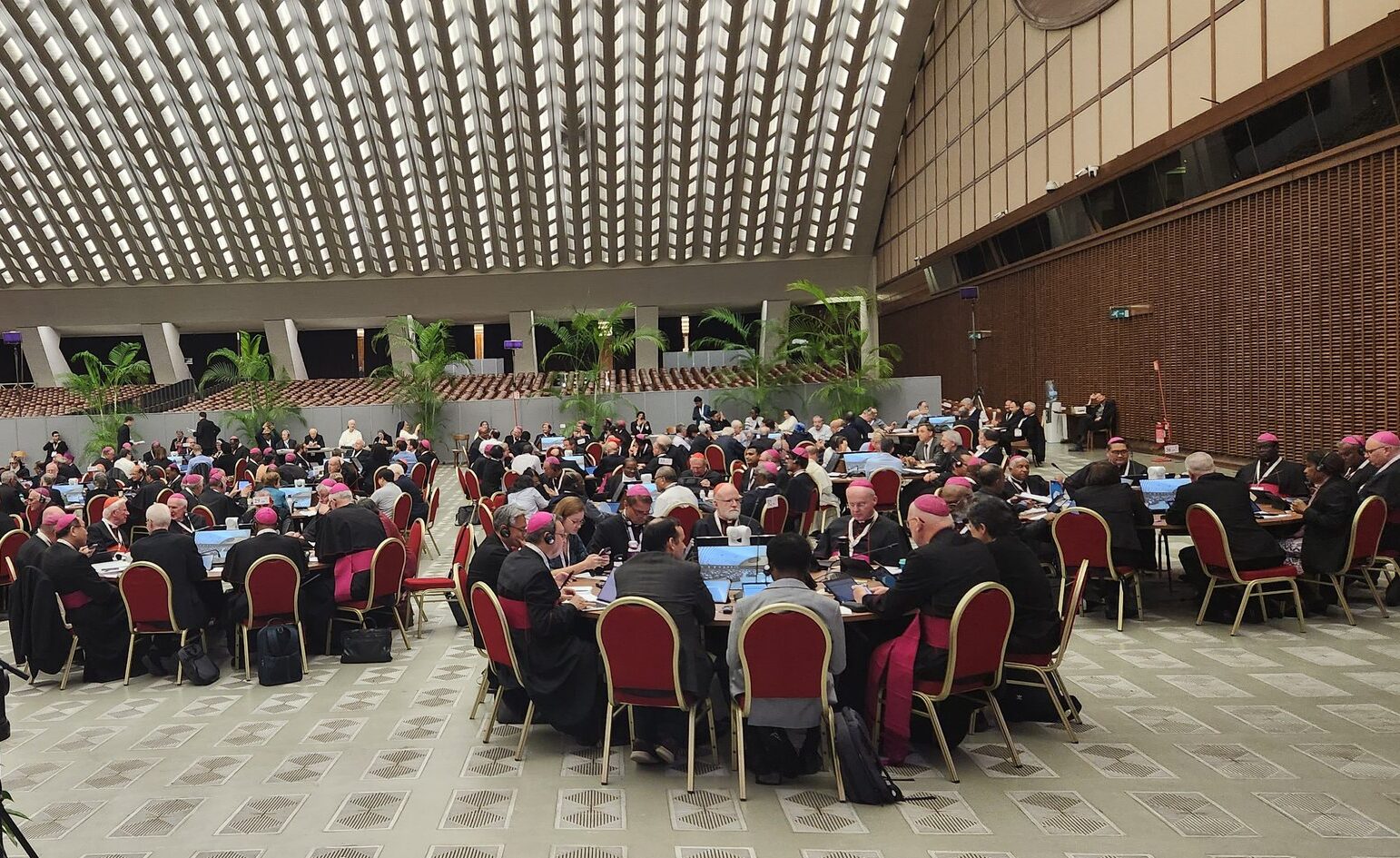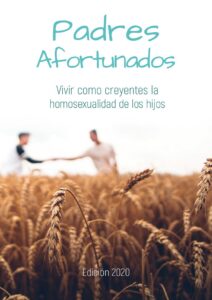The Synod published Saturday its first synthesis report summarizing key areas of conversation and offering a wide variety of proposals, including remarks on the role of women in the church, the need to combat clericalism, the pastoral desire to accompany people who practice polygamy, the welcoming of migrants and the importance of an accessible liturgy.
In an expansive 41-page document that acknowledged areas of consensus and disagreement among Synod delegates this past month, the final report is a potpourri of policy considerations, topics for further investigation and appeals towards communion. “Openness to listening and accompanying all, including those who have suffered abuse and hurt in the Church, has made visible many who have long felt invisible,” reads the report.
So where, then, are LGBTQ Catholics? They are not here in name, at least not in the pages of a report summarizing weeks of dialogue between church leaders and lay people. (The report does refer to the pastoral care of people with different “sexual identities.”) Surely, LGBTQ Catholics were the subject of repeated and often divisive discussions between Synod members. Timothy Radcliffe, O.P., described how the story of a bisexual woman who died by suicide after feeling rejected by the church reduced delegates to tears.
Surely, LGBTQ Catholics were the subject of repeated and often divisive discussions between Synod members.
Vatican correspondent Christopher White reported that “emotional debates” broke out among members on how to better include LGBTQ persons in the church. “According to interviews,” explained the National Catholic Reporter, “speeches about LGBTQ Catholics were given by delegates from a range of areas, including Eastern Europe, Africa and Australia.” Even skeptics and critics expected the Synod to “expose schism” between American Catholics on LGBTQ topics.
By multiple accounts, LGBTQ people—at least through their stories and struggles—were present in the Synod hall. But they are noticeably absent from this document. It is undoubtedly true that this report, the culmination of weeks of dialogue between more than 360 people, could not be exhaustive in its scope. The drafting committee was left with the Herculean and largely thankless task of leaving no argument behind. Realistically, some items and points of discussions would be left, if you will, on the cutting room floor.
In all this, it is important to note that LGBTQ people are not points of discussion, nor are they extraneous to the conversation. In many parts of the church, specifically in the United States, they are the conversation—and it is not always charitable. LGBTQ Catholics are vibrant, diverse and dedicated members of their faith communities who have long been the subject of derision, disgust or dismissal from some corners of the church. In terms of prominence, Catholic doctrine on homosexuality and Christian anthropology in regards to transgender people are among the most discussed and controversial issues in the modern church.
By multiple accounts, LGBTQ people—at least through their stories and struggles—were present in the Synod hall. But they are noticeably absent from this document.
I will not speculate on why LGBTQ Catholics are not mentioned in the report, as I was not privy to those internal considerations. It would be similarly inappropriate to assume malice or calculated dismissal on the part of the drafters. Again, they faced an uphill battle trying to express the fullness of this first Synod gathering in 41 pages.
But the absence of LGBTQ people in the document is bound to perplex and even anger many Catholics who participated in diocesan listening sessions to have their voices heard. In truth, the Vatican made no promises to anyone about what would be discussed or reported. This is also the conclusion of the first General Assembly, so the work continues into next year.
Going forward, and looking ahead to October 2024, I hope that Synod leaders will consider the importance of including LGBTQ people in these documents, proving the church sees those “who have long felt invisible.” Even the mere acknowledgement of LGBTQ people as vital members of the People of God would be a much welcomed statement from the Synod.




